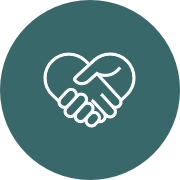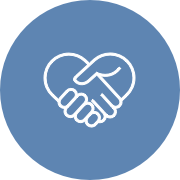Children’s Services
Lower Merion Counseling & Mobile Services is in a unique position to provide superior behavioral health care to children, adolescents and families in a safe, warm and engaging environment. Our Clinical Program is designed for children and adolescents ages 2-18 who are struggling with their transition into the next stage of development.
Our seasoned clinicians, psychiatrists, and case workers provide superior individual, group, and family therapy, as well as psychiatric evaluations and medication management to address a wide array of challenges. Our expert clinical team will assess for cognitive, developmental, language delay, ADHD or ASD, or if a child is experiencing emotional/behavioral challenges and early developmental evaluation. Multi-Disciplinary Developmental Evaluations are the most effective and efficient method for assessing whether a child is developing appropriately and for identifying areas of need. Our physicians will conduct evaluations of a child’s development through stages in major areas of functioning such as: cognitive skills, language and communication, gross and fine motor skills, social skills and behavior/temperament. Collaborative partnerships with an individual’s school, PCP and other professionals enhance continuity of care and a comprehensive approach to treating the whole person.
We serve children and adolescents with emotional and behavioral health challenges in a therapeutic environment conducive to an individual’s growth and well-being, including acute care and a holistic approach to treatment. All LMCMS programs embrace family engagement, functional behavior assessment, trauma-informed care, and positive behavior support.
LMCMS focuses its efforts on intensive services for at-risk children and adolescents with mental, emotional and behavioral disorders. Each year, more than 800 children and adolescents ages 6-18 receive specialized care in the environment best suited to the challenges they face, all with the goal of providing each child with the academic, social, emotional, and life skills needed to reach success in their lives and to become productive and positive forces in their communities.
Programs
Footprints for Life (Child, Teen & Parent Support Groups): Support groups are key to not only social development, but also for lasting therapy and benefits mental health by helping people form bonds with one another. Sharing feelings and emotions tied to experiences can be challenging and our therapists create a safe environment to evoke, learn healthy coping skills and techniques to manage daily challenges. Our support group services are integrated into many programs; psych services, med management, individual therapy, mediation and yoga.
Social Skills Development: Good social skills can make a big, positive difference in a person’s life and lifestyle. Social skills range from being able to carry a conversation to basic manners to forming friendships. Our clients will gain a benefit from improving or developing their social skills, and some need help more than others because of previous experiences, current therapy needs, or other challenges. Our services offer clients of all ages help with a wide range of social skills, and help them learn new skills as their life or lifestyle changes.
Stepping Stones for Life: A six-session primary prevention program designed to build developmental assets through the use of puppets and stories that feature “real-life” situations. The program helps young children build strong social competencies to grow up with healthy behaviors and attitudes. Includes: Six interactive group sessions for a maximum of 10 children; teacher consultation; evaluation; Teacher information packet; classroom/parent handouts; pre/post survey; evaluation summary; certificates. Learning Objectives: 1. Students will learn language and techniques for better communicating their feelings and problems. 2. Students will learn relaxation techniques through focused exercises and activities. 3. Students will practice refusal skills.
Stop-Think-Act: This program is an early childhood, resiliency-based curriculum designed to teach healthy decision-making skills to children in preschool-grade 2. Our licensed Therapists and child Psychiatrists help children develop personal, social and emotional skills through guided creative play, puppetry and role-playing and teaches them how to express feelings appropriately, think independently, accept differences, make good choices and understand the negative impact alcohol, tobacco, and other drugs can have on their lives. Includes: six, one hour, interactive group lessons, collaborative support for parents, consultation for teachers and community settings where the child is experiencing challenges, informational packet, parent handouts, evaluation summary and certificate of completion.
Behavioral Modification Support: For children and teens who have challenges expressing feelings well, or expression in general, or who may be experiencing some challenges in how they react to things or how sad they may be feeling. This general service is offered by qualified and committed healthcare professionals in order to help individuals of all ages and all types to better understand themselves and how to live better lives.
Expressive Arts: Incorporates play therapy, music therapy and creative writing to foster the ability for children to enjoy play through expressive outlets can have a very positive effect on future living. Creativity is very helpful in every form, whether it’s play, or whether it’s drawing, painting, or creating. Our services for children try to integrate many forms of creativity and play so that individuals can develop their social skills, learn to communicate through play, and exercise their minds to enhance their creativity and expression.
Guiding Good Choices: This program is a multi-session program designed to educate the parents of children in grades 4-8 on how to reduce the risk that their children will develop drug problems. The curriculum is based on research conducted by Dr. David Hawkins and Dr. Richard Catalano of the University of Washington and is recognized by the Center for Substance Abuse Prevention as a model program. Includes: Five one-hour interactive sessions; one pre-program meeting with our mobile services team, community contact, educational materials, workbooks, evaluation summary, certificates of completion. Learning objectives: learn skills to prevent drug use in families and strengthen family bonds; learn skills to reduce children’s antisocial behavior; learn parenting skills to help manage conflict and anger.



